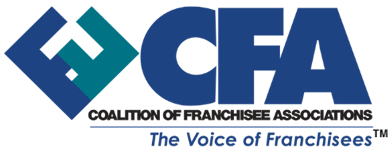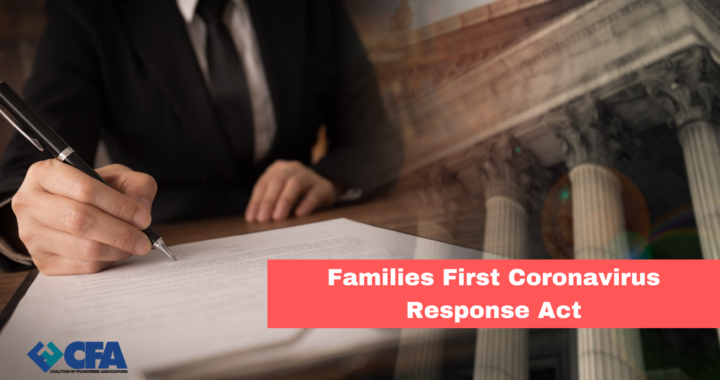KEY PROVISIONS
- Employers with less than 500 employees must paid sick and paid family leave when employees must be away from work for reasons related to the coronavirus public health emergency.
- Employers can fully recover wages paid for this leave through refundable tax credits.
- Sunset on Dec. 31, 2020.
DETAILS ON PROVISIONS AFFECTING CFA MEMBERS
Unemployment Compensation (UC):
- State governments have flexibility with respect to waiting periods and in interpreting the “able, available and actively looking” test for UC eligibility.
- Provides an additional $1 billion for state unemployment programs. Authorizes extended unemployment benefits (beyond the usual 26 weeks), fully funded by the federal government, for states that experience a spike in unemployment.
Paid Sick Leave (PSL):
- Private sector employers with fewer than 500 employees must provide employees with two weeks of paid sick leave (80 hours for full-time employees and typical number of hours over two weeks for part-time employees).
- Available to any employee without regard to duration of employment if they:
- Self-isolate because they have coronavirus.
- Obtain a diagnosis because they are exhibiting symptoms.
- Comply with an order by a healthcare professional to stay away from work.
- Care for a family member facing the instances mentioned above; or
- Care for children if schools are closed or their caregiver is unavailable because of a public health emergency.
- Rate of pay:
- Employees are compensated at the higher of their regular rate, the federal
minimum wage or the local minimum wage.
- If the employee is absent to care for a sick family member or child unable to attend school, they are compensated at two-thirds of the rate they would otherwise receive.
- This PSL policy is in addition to whatever sick leave is already offered by the employer (including and subject to state or local requirements).
- Once enacted, an employer may not make changes to its sick leave policy.
- Effective no later than 15 days after enactment through Dec. 31, 2020.
- Funding:
- Each quarter, employers subject to the requirement are entitled to a fully
refundable tax credit equal to 100% of the qualified sick leave wages paid by the employer.
- Qualified sick leave wages are capped at $511 per day ($200 per day if the leave is for caring for a family member) and 10 days.
- The tax credit is applied against employer Social Security taxes.
- Employers are reimbursed if their costs for qualified sick leave exceed the taxes they would owe.
- Department of Treasury (DOT) has regulatory authority to help with cash flow issues, for example by waiving penalties on failing to deposit payroll taxes in anticipation of the credit.
- Applies to self-employed who would otherwise qualify for paid sick leave.
Paid Family and Medical Leave:
- Requires private sector employers with fewer than 500 employees to provide employees with up to 12 weeks of paid family and medical leave.
- Available to any employee who has been employed for at least 30 days if they are out in order to:
- Comply with a requirement or recommendation to quarantine because of exposure to or symptoms of coronavirus.
- Care for a family member facing the instances mentioned above; or
- Care for children if schools are closed or their daycare is unavailable because of a public health emergency.
- Rate of pay:
- After 14 days, during which time the employee can take unpaid or paid leave (if available), employees are compensated at two-thirds of their regular rate.
- Small-business exemption:
- The Secretary of Labor is authorized to exempt healthcare providers and emergency responders and small businesses with fewer than 50 employees if the requirement would jeopardize the business as an ongoing concern.
- The requirements to restore the employee to their position after the paid leave is taken do not apply to businesses with fewer than 25 employees if the position no longer exists because of the public health emergency (provided the employer takes certain actions to try and assist the employee).
- Employers with less than 50 employees are exempt from civil actions brought by employees for violations of this section.
- Takes effect not later than 15 days after enactment of the bill and ends on Dec. 31, 2020.
- Funding:
- Each quarter, employers subject to the requirement are entitled to a fully refundable tax credit equal to 100% of the qualified paid family leave wages paid by the employer.
- Qualified paid family leave wages are capped at $200 per day and $10,000 overall.
- The tax credit is applied against employer Social Security taxes, but employers are reimbursed if their costs for qualified paid family leave exceed the taxes they would owe.
- DOT has regulatory authority to help with cash flow issues, for example by waiving penalties on failing to deposit payroll taxes in anticipation of the credit.
- Applies to self-employed who would otherwise qualify for paid sick leave, but leave would be capped at 50 days.
TAKEAWAYS
- Businesses that face a severe revenue disruption and are unable to pay their
employees, whether at work or not, may elect to furlough employees, which would allow them to access unemployment compensation.
- Business owners who already pay employees for sick leave or paid family
leave will likely be marginally better off as they are reimbursed by the federal government.
- CFA will make it a top priority that a bill be passed shortly thereafter, providing meaningful financial assistance to our members in this difficult time.

